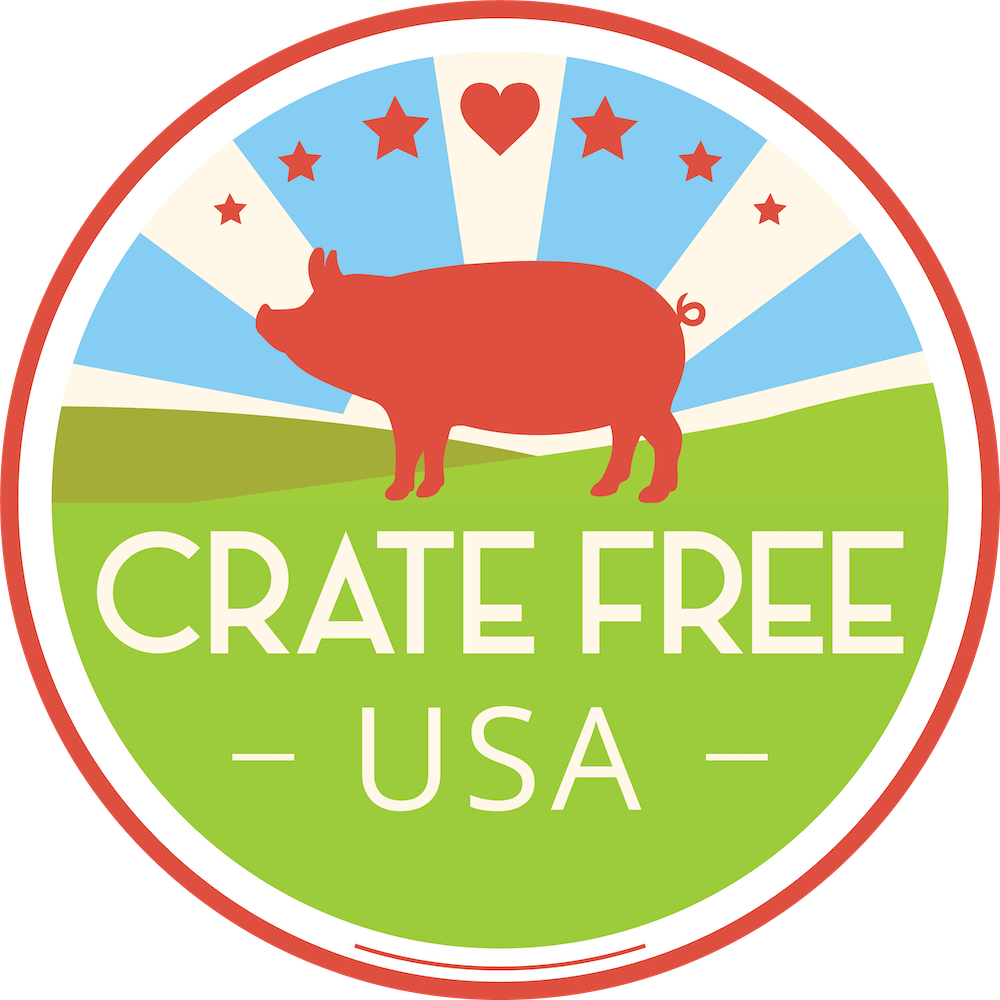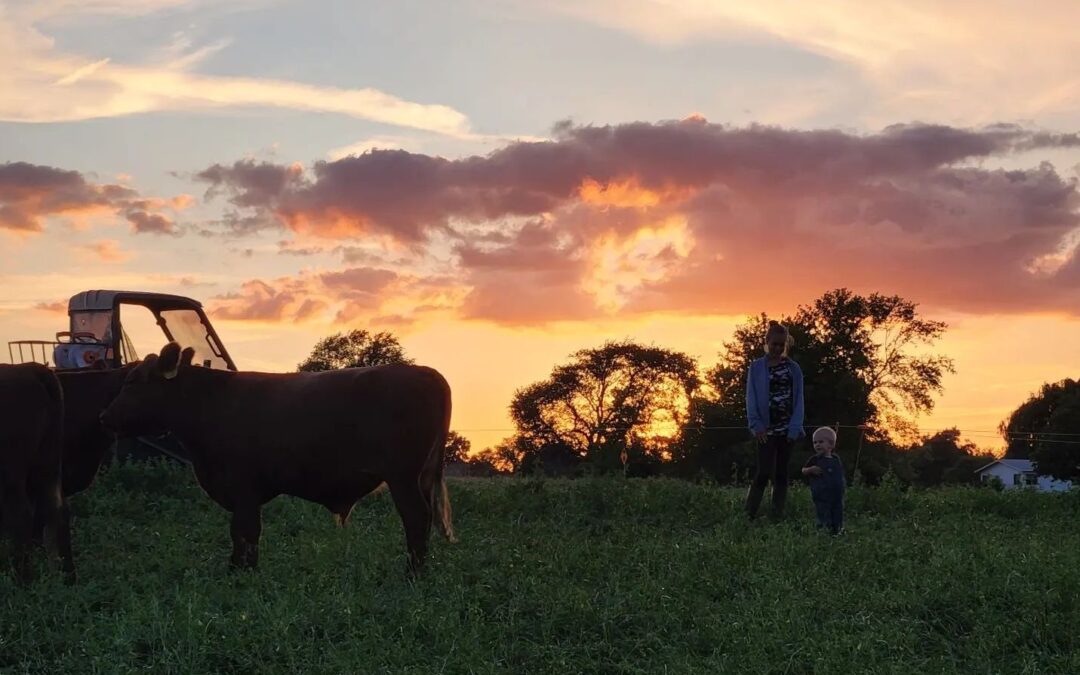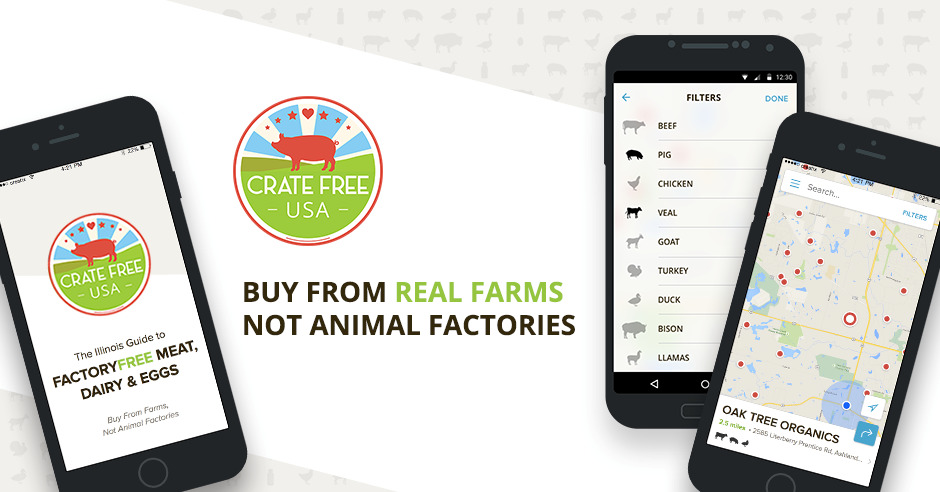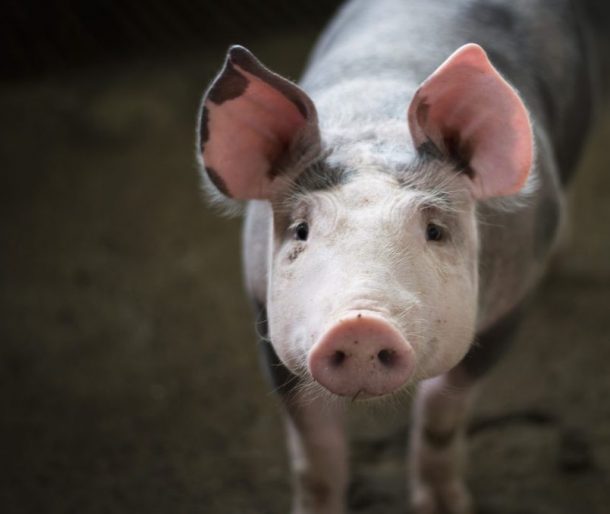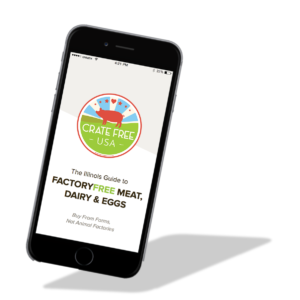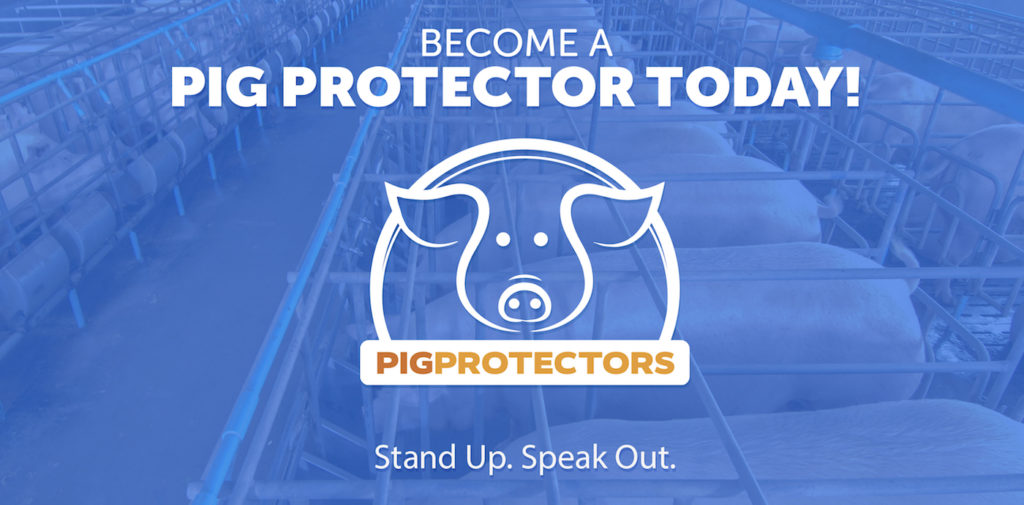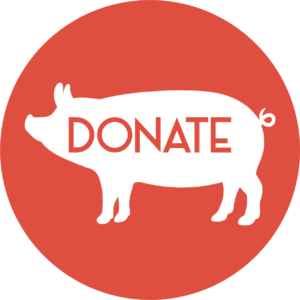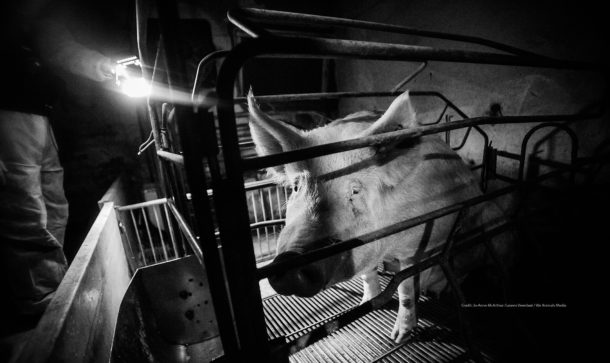At Crate Free USA, our mission is to improve the lives of animals raised for food. And since the vast majority of Americans still eat meat, the best way to do this is to shop from local farmers who care about the animals they raise far more than the huge factory farms and corporations who own so much of the food industry today. While we do promote a reduction of meat in your diet, we also support our local farmers who raise animals more humanely and sustainably.
It’s easy for you to find a local, sustainable farmer near you in Illinois.
Just download our free mobile app!
Joe Wanda of Wanda Farm in Harvard, Illinois, grew up on his parents 27-acre “hobby” farm. He found himself enjoying waking up early to help his mom milk the cow and feed all the animals. As time passed, he realized that he had a passion for producing food and working outside and knew he wanted to be a farmer. In 2018, he and his wife purchased 77 acres of their own. They’re very passionate about the fact that the quality of food starts with the farmer’s philosophy. They are committed to farming with the knowlege that the land, livestock, and environment all have a symbiotic relationship.
Their mission is to produce wholesome, nutrient dense food with regenerative farming practices and connect 10,000 families to their farmer.
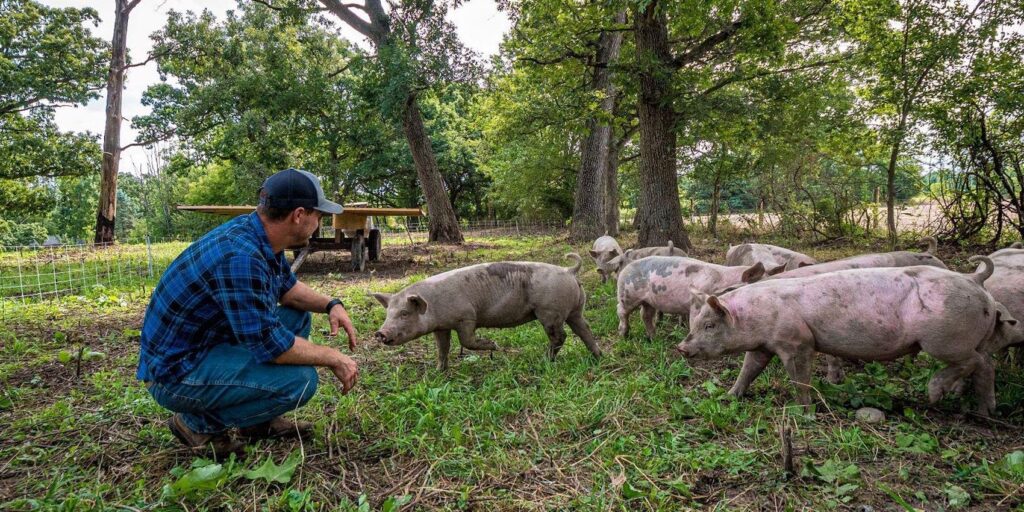
Joe Wanda looks over his pastured pigs
Tell us about your farm?
We raise around 80 pasture raised hogs and 2400 pasture chicken and 70 grass-fed beef. They are rotated daily to fresh pasture during the growing season. Also a flock of 1200 hens for eggs.
How did you first become involved in farming?
My mom had a small hobby farm after moving us out of Chicago in 1990. This is where I first had experience raising livestock and found I had a passion for farming.
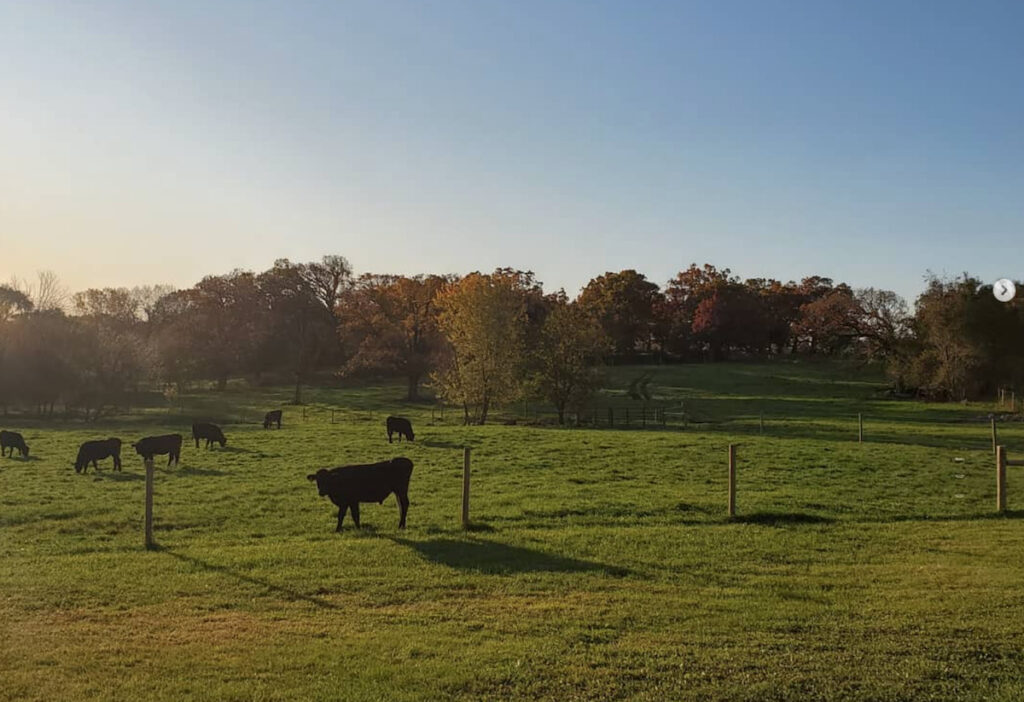
Wanda Farm’s cows raised on pasture
Why is farming sustainably and humanely important to you?
I think it improves the animals’ health and wellbeing. It also produces a healthier meat profile for our consumption (we take our health very seriously). Having animals on pasture is better for the environment and reduces the industrial monocropping farming model which is not sustainable.
How have the economics of farming changed in the last several years and how has it affected you? What further changes are you anticipating?
The economics are always changing. We’ve had to realize, we can’t compete with Walmart and other major grocery stores prices. We know our cost and charge for our product accordingly so we can stay in business. Many people complain and many appreciate what we do and are more than happy to pay our high prices. At some point we are going to pay the price for the unsustainable factory farming model.
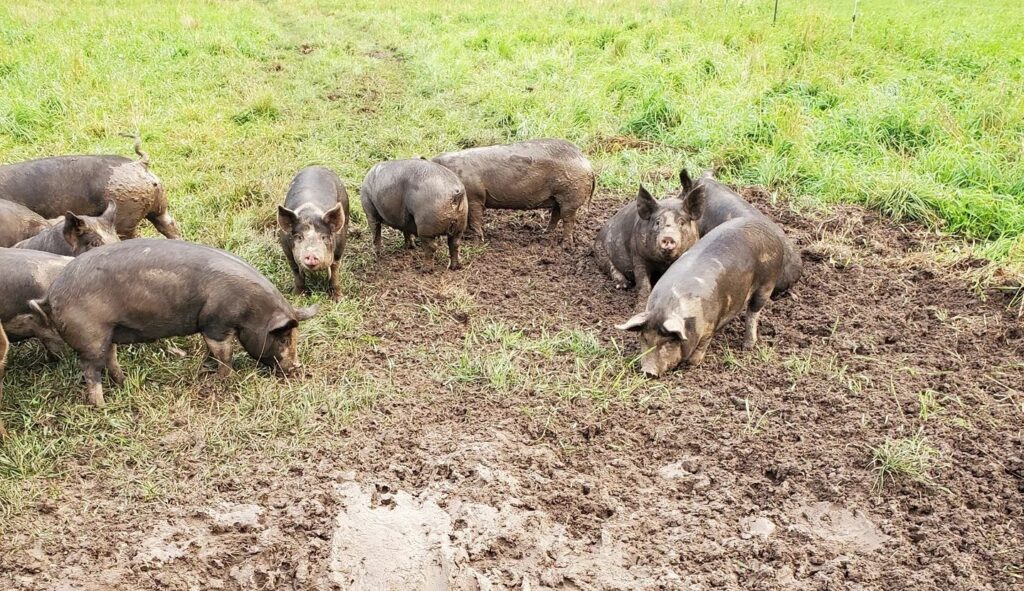
Pigs on Wanda Farm enjoying a mud bath
What are your views on extreme confinement and gestation crates for pigs?
We are thankful to have a farm partner that breeds and farrows all our hogs for us on his farm. He does all this out in the pasture. It’s definitely important that the hogs live in a natural environment that honors their well being.
Would you support a bill to end extreme confinement? Why or why not?
Do I support a bill against extreme confinement? I don’t do a lot with politics. I think you would have a hard time getting a bill passed that promotes factory farming or against it. There’s so much lobbying power that industrial farming has. I think the only way to combat this is the consumers and farmers working together and cutting out the grocery stores’ middle men.
Consumers will be the ones to promote any change by voting with their food dollars.
As online has made it easier than ever for farmers to reach consumers directly, I think this movement will continue to grow and hopefully make some real change. There will probably always be both, as lots of consumers are only price conscious and don’t care about animal welfare or quality of food.
I think a bill won’t fix the problem. There’s a bigger problem here, with consumers needing to get educated about where their food comes from and WANTING change. Too many talk, but don’t actually do the hard work to change their food source.
What is your current slaughter process? What do you think about mobile abattoirs and is that something you would potentially use?
Yeah, I love the idea of someone in my area doing mobile butchering. Since we are on the border of Wisconsin and Illinois, we sell across the state line all the time. So we need a USDA inspected facility to comply with law standards. This limits our options for processing in our area, as many are only state inspected.
Currently we process all our beef and pork at a family butcher in Grand Rapids, MI. They do a great job compared to anyone we’ve worked with near our farm. They offer mobile butchering, but refuse to come to our farm, since we are 4.5 hours away. We always make the process of loading animals on trailers and travel as low stress as possible with proper equipment and setup. Our butcher follows all of Grandin Temple’s process for a quick and humane slaughter.
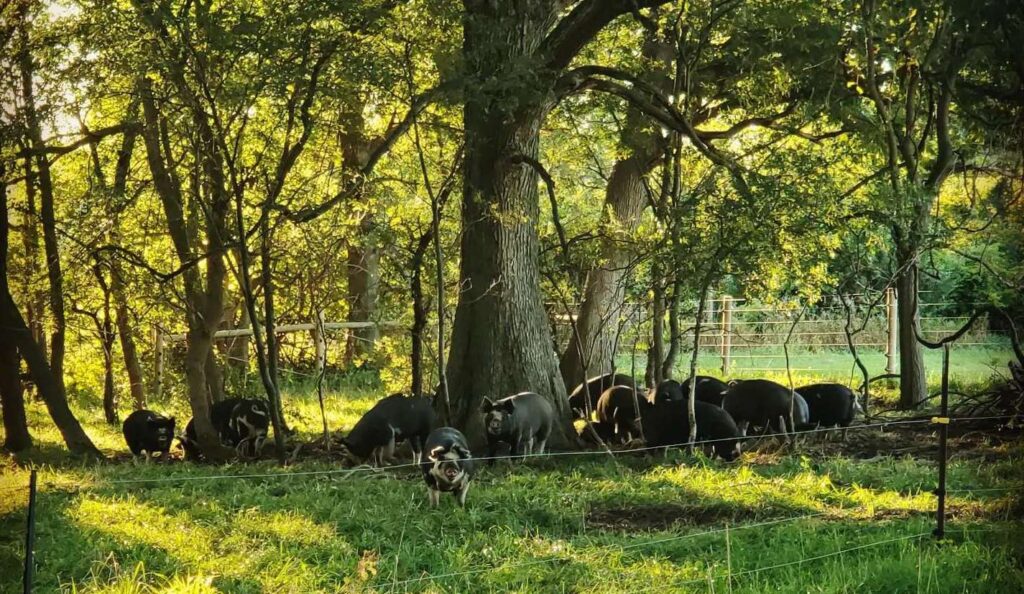
Hogs enjoying natural surroundings
What can consumers do to help improve the lives of all our farm animals?
Be willing to allocate more of their income on purchasing quality food from a local farm. Small farms usually are more focused on animal welfare. They cannot compete with grocery stores, so putting the pressure on them to lower their prices will result in less of these small farms going out of business.
The farming motto now is go big, or go home. As to keep up with farm income, farms have to expand. So they go towards factory farming models to be more efficient and produce a cheaper product, meanwhile the livestock and the quality of food suffer. Also the environment is sacrificed for short-term gain.
Farming the niche on quality is the only other alternative for small farms to stay profitable. Food has increased a very small amount over the last 100 years, when you adjust for inflation.
Meanwhile, Americans have never been more comfortable with the latest technology gadgets and spending money out the wazoo on entertainment. The line, “I can’t afford it” is just an excuse. Meanwhile, I notice that person has the latest i-Phone and can take their family to Disneyland.
Sorry I’m getting off subject here, but again the factory farming model is self induced because our consumers have accepted it with their food dollars.
Consumers decide, by where they spend their food dollars.
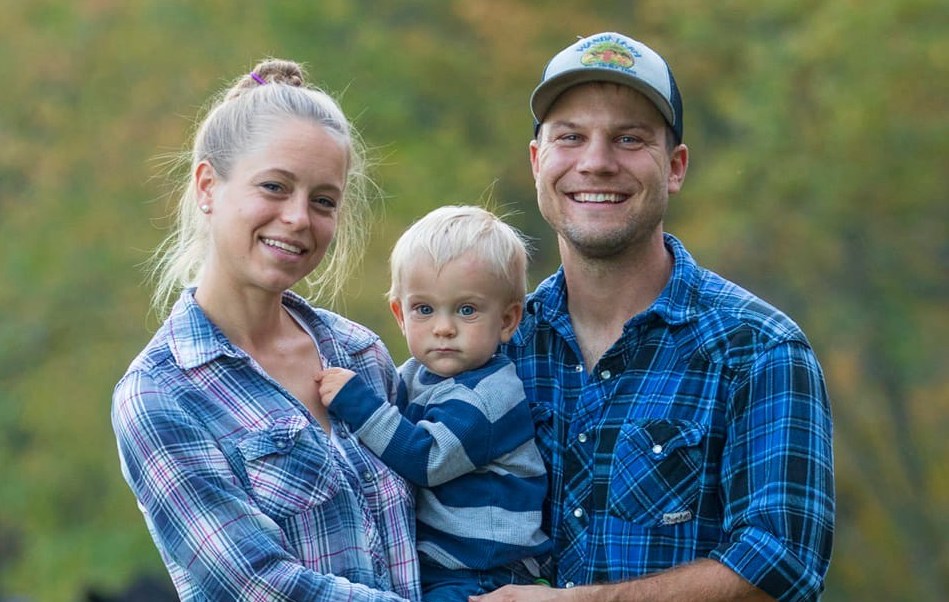
Hannah, Titus, and Joe Wanda
How do you market and sell your products? How can people shop with you/find you? Can they visit the farm?
All our products are available to purchase on our website. We offer home delivery or pickup here at our farm. Yes, we do farm tours during the summer months, so visits are welcome.
The Illinois Guide to FACTORY- MEAT, DAIRY, & EGGS
As always, to find a local farm farm near you, please
download our app, The Illinois Guide to Factory-Free Meat, Dairy, and Eggs. Here you can buy direct from a local, sustainable farmer, not animal factories. Use the app to search for local farms, farmers markets, and restaurants that source humanely raised meat, dairy, and eggs.
All photos courtesy of Wanda Farm.





